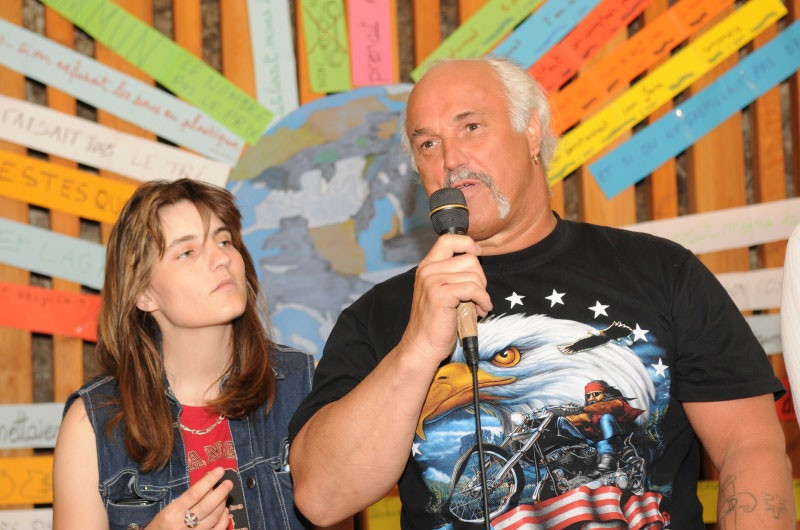The ATD Fourth World People’s University – Knowledge that Transforms

Genevieve Tardieu is a full-time member of the ATD Fourth World Volunteer Corps. She recently published her doctoral research under the title, L’Université populaire Quart Monde. La construction du savoir émancipatoire (The Fourth World People’s University: Building emancipatory knowledge. A draft English translation of this book is available and can be requested from . In this article, she presents her research, which explores how transforming relationships among people from different social backgrounds can lead to creating new knowledge.
This book presents analysis as well as collective thinking.
The research was carried out in partnership with participants in the People’s University. They explained how relationships are transformed, and how knowledge is produced from that. This collective work reflecting on their experience gave proof that it is both possible and fruitful to think together with people who live in extreme poverty.
There are several kinds of people’s university networks. What is special about the Fourth World People’s University?
Joseph Wresinski, the founder of ATD Fourth World, created the Fourth World People’s University in 1972. There are two main things that make it unique. First, the main participants are people living in extreme poverty, together with others who live and work in solidarity with them. Secondly, while other people’s universities teach knowledge, the Fourth World People’s University produces knowledge. This production of knowledge is created by the interactions among participants from diverse social backgrounds. Currently, the Fourth World People’s University holds sessions in a dozen countries, as well as in eight regions throughout France.

What kind of knowledge do they produce?
First of all, the People’s University produces practical knowledge: participants learn to communicate with people from social backgrounds other than their own. In addition, different kinds of knowledge are merged. On a given subject, each participant contributes a unique perspective—a result of their own life experiences and point of view. This leads to collective thinking about the subject, based on multiple perspectives. The subject might be health care, exile, dignity, or something else. By looking at this subject through the lens of poverty, we avoid unrealistic theories. The knowledge created is new, because it emerges from confronting many subjective perceptions, including those that are rarely, if ever, shared. And when this knowledge is truly understood, it can lead to a transformative personal experience for all those involved. Developing this knowledge together gives all the participants a stake in ensuring that it contributes to social change. In addition, the process of developing knowledge together contributes to overcoming poverty.
So the People’s University produces knowledge that can transform society as a whole?
The knowledge produced at the People’s University serves as a catalyst for action by ATD Fourth World. It contributes to our public advocacy work with policy makers, to our grassroots projects, and also to engaging people who decide to make a commitment to overcoming poverty. This book provides specific examples of this.
Who are the book’s intended readers?
Despite the fact that the text is dense, it is accessible to everyone. The book provides both theoretical and historical references, as well as practical examples.
Is this an invitation to create other people’s universities of the same type?
Creating this kind of a People’s University is no easy feat. The book describes the conditions required, which are very demanding. It should be emphasized that one of the most important conditions for people in poverty to participate successfully in People’s University is the preservation of their free agency. It is also important for everyone participating to be able to choose freely to work toward overcoming poverty.
The Fourth World People’s University plays a role in challenging public policy. As a result, it may interest educators, popular educators and community workers, and any citizen.
Based on an interview by Jean-Christophe Sarrot.

